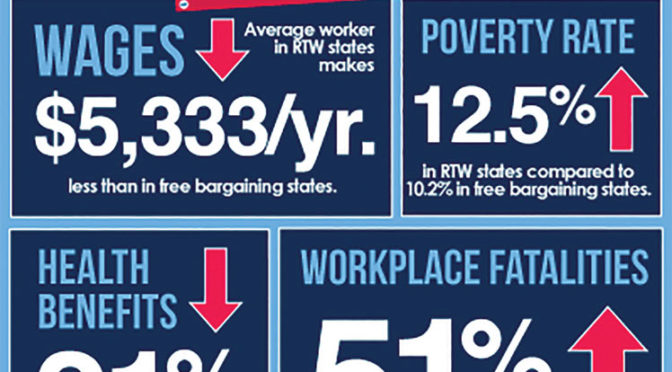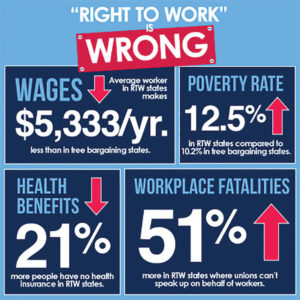Four national union presidents—Lee Saunders of the American Federation of State, County, and Municipal Employees (AFSCME); Lily Eskelsen-Garcia of the National Education Association (NEA); Mary Kay Henry of the Service Employees International Union (SEIU); and Randi Weingarten of the American Federation of Teachers (AFT)—displayed their solidarity at the AFT Convention in mid July.
“Our four great unions enjoy indestructible bonds of solidarity,” says Saunders. “There is no daylight between us, not even an inch. And that’s never been more important than now.” Across the country unions are demonstrating that organized labor will overcome the current political attacks, including the recent Janus ruling and other anti-labor rulings as President Donald Trump seeks to install Brett Kavanaugh on the Supreme Court.




